
Whether you’ve just had your teeth bleached or you’re simply looking to make changes in your diet to promote whiter teeth, it’s important to recognize that what you drink can have a major impact on the appearance of your pearly whites.
As Greater Vancouver’s go-to clinic for aesthetic dentistry, we are here to share some helpful and easy-to-follow tips so that moving forward you watch what you sip.
5 Teeth Staining Beverages You Should Stop Drinking if You Want to Maintain a Brighter and Whiter Smile
1. Coffee
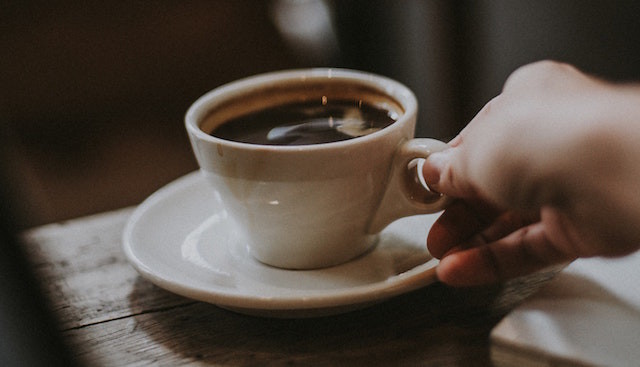
Sorry, but you had to see it coming as the color alone is a dead giveaway. Both the pigment and acids found in coffee contribute to your teeth turning a yellowish tinge over time. In addition, the acidic nature of this popular beverage can bring upon enamel erosion and tooth decay. It’s also important to consider what you put in your coffee. If adding sugars and sweeteners, you increase the risk of tooth decay which in turn only compounds your teeth whitening concerns. But it doesn’t stop there.
As you know, drinking a caffeinated beverage such as coffee can disrupt your sleep. But studies show that caffeine consumption can also lead to bruxism (teeth grinding) which can damage tooth enamel and once again impact your ability to maintain a brighter smile.
Now we know if you’re a regular coffee drinker, you’re probably not going to stop anytime soon. But you can take steps to minimize the risk for the discoloration of your teeth. Sip your coffee with a straw so that it does not touch the visible fronts of your teeth, brush after consumption, and just say “no” to that refill.
2. Tea
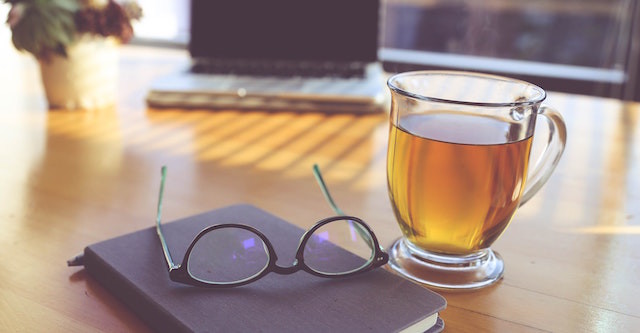
Coffee’s cousin may have a lighter pigment upon inspection, but it is actually more likely to stain your teeth than coffee thanks to its higher tannin content. Tannin is responsible for the astringency, color, and flavor in tea. Tannin is a cluster of pale-yellow to light-brown amorphous substances in the form of powder, flakes, or a spongy mass and is widely distributed in plants. The natural pigment of tannin makes it perfect for tanning leather, dyeing fabric, and making ink. So you can see why tannin (and tea) is a nightmare for your teeth whitening aspirations.
And like with coffee drinkers, we know that tea aficionados will not likely cut this out of their daily regime, so the same rules for coffee apply. In addition, be sure to drink water after consuming tea as this can help reduce the amount of tannin left in your mouth. Also consider switching from black tea to herbal or green tea which can also reduce staining.
3. Red Wine
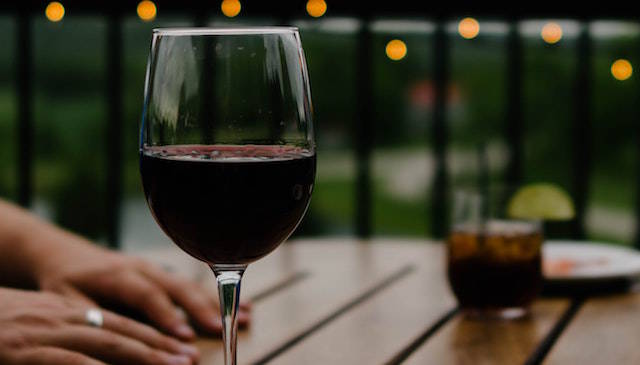
Acids and tannins (there they are again) are heavily concentrated within red wine. In addition, the natural dark pigment of the grapes used to make red wine make it a prime culprit against pearly white ambitions. One word of caution – if you’re thinking about switching to white wine as an alternative, you’d be wrong to do so. Keep reading.
4. White Wine
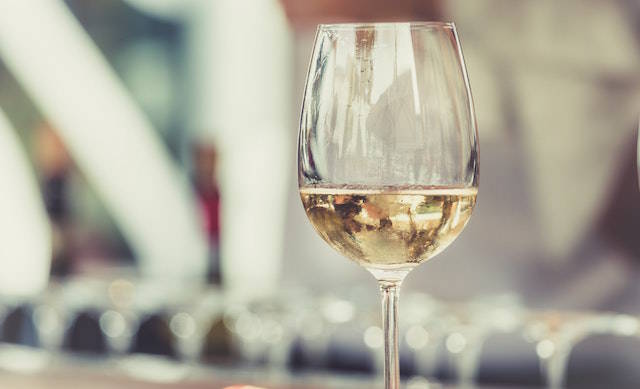
While red wine with its higher concentration of tannins certainly stains your teeth, white wine will actually cause more damage. This is because white wine is more acidic, and consumption of it reduces the mineral content of your teeth which leads to erosion of the enamel.
The goods news, is that while you should reduce your wine intake for the sake of whiter teeth, you don’t have to miss out on a great glass of wine (red or white) with dinner. When you pair your wine with high fiber foods such as broccoli, brussel sprouts, and potatoes, you mechanically brush stains away. Cheese also has the same effect, so it seems that “wine and cheese” is a match made in heaven for more than one reason.
5. Soda
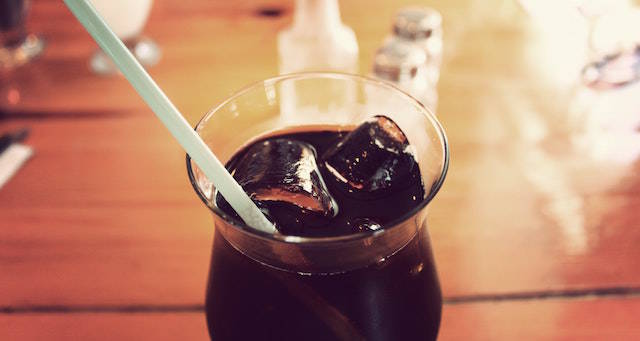
Skip the bubbly stuff if you want to attain and maintain white teeth. Cola and all sodas are a big no, given that they stain your teeth because of two key ingredients. Soda contains the substances known as phosphoric acid and chromogens.
Phosphoric acid is added to soda for flavoring, but as the name suggests, the acid also weakens your tooth enamel. With the eradication of this protective surface layer, your teeth become more susceptible to the stain-causing ingredients colored sodas and other various foods that you may be consuming with your beverage.
The other substance, chromogens, give cola (and other colored varieties) its pigment. Chromogens directly stain your teeth. So when you combine the acid-causing loss of tooth enamel with the added chromogen colors you’ve created the perfect storm to hit your teeth with a yellow, dingy, and unhealthy appearance.
Cutting out soda altogether is the suggested course of action here. It’s simply bad for you on every account and can have no part in your life if you truly want a brighter and whiter smile.
Is the appearance of your teeth not what it used to be? If you reside in the Greater Vancouver area, schedule a consultation with our clinic to discuss your teeth whitening options.




